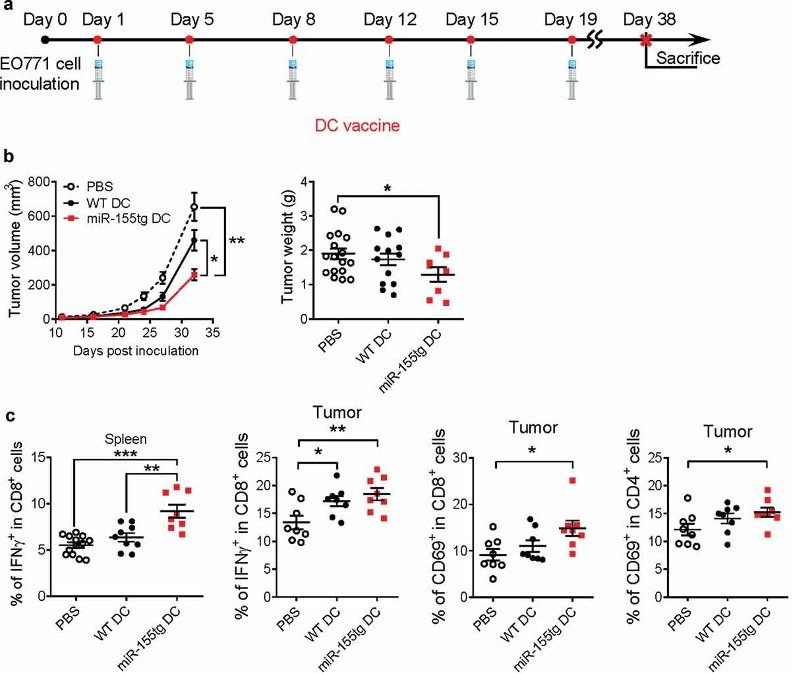The Publication:
Overexpression of microRNA-155 enhances the efficacy of dendritic cell vaccine against breast cancerA
Sounds like a mouthful? Don’t worry—there’s a summary below.
Publication Summary:
Dendritic cell (DCs) vaccine is a new type of immune therapy for cancer; however, the efficacy of DC vaccines is suboptimal. It is important to develop strategies to improve their efficacy. MicroRNA 155 (miR-155) plays important roles in the regulation of the development and functions of a variety of immune cells. We previously revealed a vital role of miR-155 in regulating the function of DCs in breast cancer. miR-155 deficiency in DCs impaired their maturation, migration, cytokine production, and ability to activate T cells. In the current study, to exploit the therapeutic value of miR-155 for breast cancer, we examined the impact of overexpression of miR-155 on antitumor responses generated by DC vaccines. We boosted miR-155 expression in DCs by generating a miR-155 transgenic mouse strain (miR-155tg) or using lentivirus transduction. DCs overexpressing miR-155 exhibited enhanced functions in response to tumor antigens. Using miR-155 overexpressing DCs, we generated a DC vaccine and found that the vaccine resulted in enhanced antitumor immunity against established breast cancers in mice, demonstrated by increased effector T cells in the mice, suppressed tumor growth, and drastically reduced lung metastasis. Our current study suggests that in future DC vaccine development for breast cancer or other solid tumors, introducing forced miR155 overexpression in DCs via various approaches such as viral transduction or nanoparticle delivery, as well as including other adjuvant agents such as Toll-like receptor ligands or immune stimulating cytokines, may unleash the full therapeutic potential of the DC vaccines.

